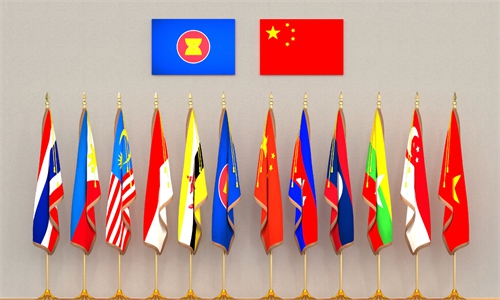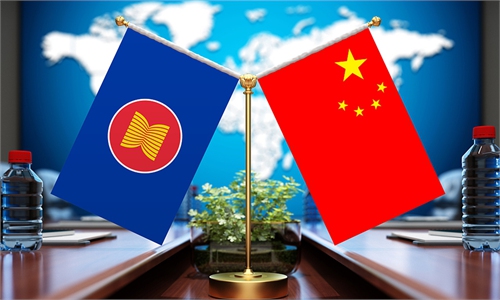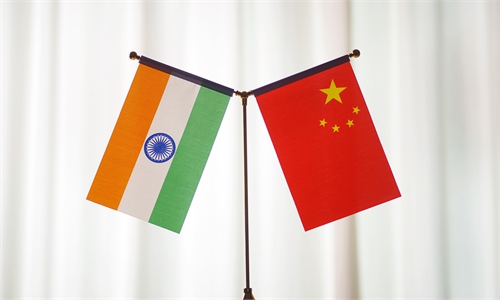
Illusion: Chen Xia/GT
Editor's Note:The world today is far from being tranquil. Facing a choice of the times between solidarity and division and cooperation and confrontation, the international community expects Asia to play a leading role. ASEAN countries are successively hosting three important multilateral meetings including the ASEAN Summit and Leaders' Meetings on East Asia Cooperation, the G20 Summit, and APEC Economic Leaders' Meeting. Focusing on the "Asian Moment," Global Times will invite several Chinese and foreign scholars to discuss how Asian countries can contribute "Asian wisdom" to the world amid unprecedented changes unseen in a century. This is the first of this series.
With the ASEAN Summit and Leaders' Meetings on East Asia Cooperation, the G20 Summit, and APEC Economic Leaders' Meeting being successively held recently, an "Asian moment" for global governance has become the focus of attention of the international community.
When the world is suffering from a growing deficit of peace, governance and security, the "Asian moment" will undoubtedly inject hope for countries to strengthen cooperation and jointly deal with the difficulties and challenges. The fact that the Asian countries can maintain friendship, unity, mutual benefits and win-win results as always is the fundamental guarantee to ensure the region will continue to play a constructive role and make greater contributions to global governance.
Since the end of the Cold War, East Asia, including China, Japan, South Korea and the 10 ASEAN countries, has not only been the fastest growing region in the world, but also the safest and most peaceful region. From 1991 to today, East Asia has not seen any regional military conflict or war for 30 years. The region has become one of the three major crucial economic centers of the world alongside Europe and North America. Over the past 30 years, cooperation, openness and solidarity between Asian countries have become an important strategic driving force for East Asia's stability and prosperity.
As the most representative and cohesive sub-regional organization, ASEAN has been playing a constructive role in Asian regional politics in the post-Cold War era. ASEAN emphasizes Asian centrality. Against the backdrop that the major power political game won't substantively change; the US always attempts to dominate the regional political and security order, ASEAN should play a constructive role in the diplomatic field to avoid geopolitical and geo-economic divisions.
Cooperation in Asia is also a key factor for stability in the South China Sea. 2022 marks the 20th anniversary of the signing of the Declaration on the Conduct of Parties in the South China Sea. China and ASEAN approved the framework for a Code of Conduct for the South China Sea in 2017 and arrived at the single draft negotiating text in 2018. Due to the pandemic, the negotiation process has stalled. But the China-ASEAN mechanism over the South China Sea issues, including dialogues and COC negotiations, has enhanced the political mutual trust between China and ASEAN countries, promoted dialogue and cooperation of all parties involved in the waters, and played a key role in maintaining the stability in the South China Sea. It has also created a favorable political environment for enriching and improving the China-ASEAN comprehensive strategic partnership. Today, the South China Sea issue is no longer a simple matter of maintaining stability. It is more about promoting marine governance, environmental and ecological protection, and turning the waters into a sea of peace, friendship and cooperation by all parties.
The 20 years since the signing of the Declaration on the Conduct of Parties in the South China Sea have fully proven that China and ASEAN countries have the full confidence and wisdom to handle the South China Sea issue. Properly handling similar issues and forging ahead while keeping unity are the foundations for ensuring the Asian region plays a greater role in global governance.
Thanks to joint efforts, China and ASEAN have maintained diverse and strong political, economic and social relations and shared common views on the international situation. The China-ASEAN ties which have seen deep integration in security and development interests, have become the most active factor behind the "Asian moment" for global governance.
However, it is worth noting that when global governance ushered in the "Asian moment," the US was still stepping up its efforts to suppress and contain China, and the regional diplomacy of Japan, South Korea and other countries also shows a negative trend of following the US suit. The regional order in Asia is facing a severe situation in which a small number of countries are trying to promote bloc confrontation and undermine the regional economic and trade rules of open and free cooperation. In this regard, Asian countries must remain highly vigilant. The current changes and turmoil in the world especially require "Asian wisdom" to bring stability, and it is necessary for Asian countries to join hands and contribute "Asian solutions." Continuing to unite Asian countries to jointly cope with the profound changes unseen in a century and the evolution of the world's political and economic uncertainties is also the essence of the Global Development Initiative and the Global Security Initiative proposed by China.
ASEAN countries are successively hosting three major regional and international summits, which are the highlight of Asian countries demonstrating the "Asian spirit" of solidarity and mutual assistance, the "Asian wisdom" of harmony and symbiosis and mutual learning of civilizations, and the "Asian way" of true multilateralism. During this period, the China-ASEAN comprehensive strategic partnership and the solidarity of wider Asian countries will make the "Asian moment" of global governance glorious.
The author is a professor of international relations at Nanjing University. opinion@globaltimes.com.cn



